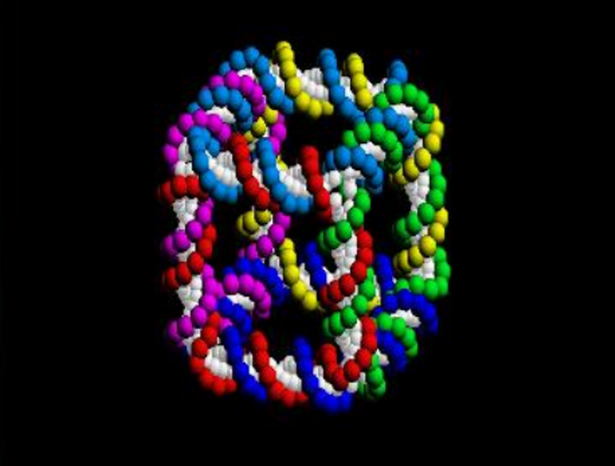
PLYMOUTH SCIENTIST SETS UP HIS OWN BIO COMPANY

Featured in the Plymouth Herald, by William Telford, Business Editor
A Plymouth scientist has been inspired by Star Trek nemesis the Borg to start a company which will look at putting living organisms inside machines.
Dr Raymond Sparrow is an expert in the field of synthetic biology, which he says could be the basis of an exciting new industry.
He has written papers and given lectures on how engineering and physics can be more closely linked with biology – and create “biological machines”.
That means using molecular and sub-cellular living organisms and using them to replace components in machines, such as in circuit boards.
This could lead to the creation of new products, devices and machines which are more efficient and could have huge implications for medicine, energy, industry, computing, data storage and the environment.
It could even lead, eventually, to machines that can repair themselves.

But Dr Sparrow said any idea that it could lead to the creation beings like the Borg – half-humanoid-half-machine cybernetic organisms which are a constant thorn in the side for Captain Jean-Luc Picard and the crew of the USS Enterprise – remains in the realm of fiction.
Nevertheless, he said: “The Borg is where I got some of my inspiration.”

Dr Sparrow, who has a PhD in biophysics, worked for years in South Africa, teaching and carrying out research, some of which was involved with synthetic biology.
He was the first person to carry out research into the uses of synthetic biology in engineering and over five-years was involved in a project which received £6million in investment.
He returned to Plymouth in 2014 and now has started a scientific consultancy advising firms and universities on how biology, engineering and design can be integrated.
He has already outlined his ideas to Devon Chamber of Commerce, and is about to meet Devon and Cornwall Business Council and the Institute of Export.
“It’s about using biological systems and materials, at a sub-cellular and molecular, level, to make machines and devices,” he said.
“This could be to replace existing machines and devices or make completely new ones.”
Dr Sparrow explained that using such tiny organisms to replace components in machines, could have huge beneficial results.
“They could make products more efficient in terms of energy used,” he said. “They could even assemble themselves or a cell could detect when it is damaged and, to a certain extent, repair that damage.
“It could be applied to any area of engineering or design you can think of.
“The idea is to develop the sector, particularly in Plymouth and the South West, taking these ideas from research to systems where they could be up-scaled to commercial production.”
Dr Sparrow said engineers and designers now need to work together so commercial products can be developed.
“It’s quite a new area globally, but a business it is still worth several billion dollars and will only grow.
“The UK is pretty well established as a synthetic biology centre, but it could do more.
“And most is on the genetic side, I’m looking more at the molecular level.
“And I see no reason why the South West, and Plymouth, couldn’t be a hub for that.
“We need to get students interested now, they will need these skills in 10 years time. Also, the general public doesn’t know about this and we need an informed debate.
“There are issues, potentially on the genetic side we are manipulating living cells.”
“There is also a school of thought that it’s trying to create life synthetically, which I imagine could be controversial.”

